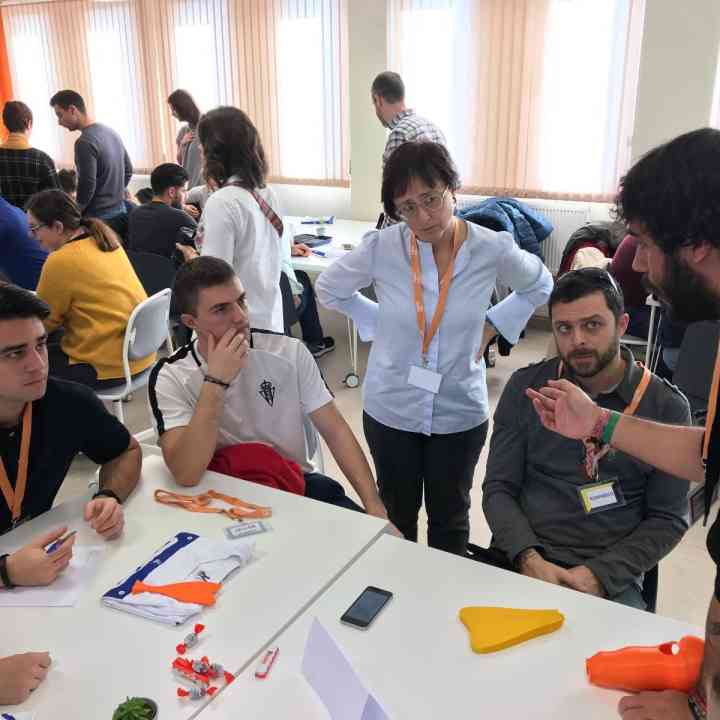
Dealing with the client, budgeting and planning the stages of brand creation

Madrid Spain
Profession: An Architect
Specialization: Proyecto Arquitectónico
Works at: Escuela Superior de Ingeniería y Tecnología, Universidad Internacional de la Rioja
Teaches at: Director Académico del Máster Universitario de Herramientas y Tecnologías para el Diseño de Espacios Arquitectónicos Inteligentes
Joined FOROALFA: 2013
PhD in Architecture (FADU.UBA); Postgraduate in Digital Design (FADU.UBA); Master in Conservation and Rehabilitation of Architectural Heritage (FAUD.UNC); Architect (FAU.UNT).
He has 25 years of experience in the field of project design. He has taught undergraduate, graduate and doctoral courses at different national and international universities, including the University of Buenos Aires, the University of Costa Rica, the Complutense University of Madrid, the King Juan Carlos University, the International University of Catalonia and the University of Oviedo.
He is academic director of the Master’s Degree in Tools and Technologies for the Design of Intelligent Architectural Spaces (UNIR), where he teaches Computational Design Tools. He was also academic coordinator of the Master’s Degree in Multimedia Design and Production (UNIR), where he teaches Digital Animation and Multimedia Content Creation, and in the Degree in Digital Graphic Design (UNIR) and in the Degree in Interior Design (UNIR). He has experience in the use of new digital technologies in design.
He has been project coordinator at Medialab Prado Madrid, developing research related to new digital technologies. He has received scholarships from the National University of Tucumán and the University of Buenos Aires on several occasions to develop doctoral and postdoctoral research.
He was a civil servant in the Ministry of Culture of the Government of the Autonomous City of Buenos Aires. Author of numerous articles related to Architectural Criticism, New Manufacturing Technologies, and Bio-Digital Design.

Dealing with the client, budgeting and planning the stages of brand creation
Jan 2020 My reply on the dialogue started by  Valentina Bg in the article
Valentina Bg in the article  La burocratización de la investigación
La burocratización de la investigación
Totalmente de acuerdo contigo Valentina. Son los tiempos que nos están tocando vivir. Estamos transformando la Universidad en una perfecta caja de zapatos. Lo que no encaja queda afuera, y se le pone la tapa para que no entre.
Dec 2019 My reply on the dialogue started by  Lady Alcívar in the article
Lady Alcívar in the article  Diseño joven y la creación del hombre nuevo
Diseño joven y la creación del hombre nuevo
Se necesita más rebeldes con ideales!!! :-) Gracias Lady!!!
Dec 2019 I like the comment of  Lady Alcívar in the article
Lady Alcívar in the article  Diseño joven y la creación del hombre nuevo
Diseño joven y la creación del hombre nuevo







Train with the experts from our community.
View Courses (in Spanish)Refreshing courses to specialize with the best.

Professional practice workshop: analysis, diagnosis and branding program on real cases
30 hours (approx.)
enero

Dealing with the client, budgeting and planning the stages of brand creation
15 hours (approx.)
enero

Keys for programming the design of high-performance logos and graphic symbols
20 hours (approx.)
febrero